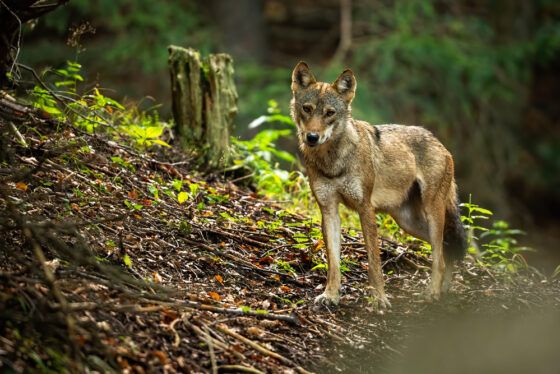Provinces call for ‘more noise’ about culling wolves in NL


The provinces of Drenthe, Overijssel and Friesland have asked nature minister Christianne van der Wal to ‘make more noise’ in Europe about limiting the protected status of wolves, opening up the way to controlling their numbers.
The Netherlands is currently home to four wolf packs and, anti-wolf campaigners say, the animals are killing livestock and could even pose a threat to humans.
At the moment the ‘management’ – or culling – of wolves is against the law but this, said Drenthe provincial deputy Henk Jumelet (CDA) should change. ‘The Netherlands hasn’t made any noise [about the status of the wolves] but meanwhile wolves are leading to unrest and sadness in our country,’ he told local broadcaster RTV Drenthe.
European rules state that other possibilities to keep wolves from making a nuisance of themselves should be exhausted and that Europe can accommodate at least 1,000 packs. At the moment the number stands at 300.
‘You can’t say there are too few because of the speed with which the wolves are proliferating,’ Jumelet said. ‘The number of wolves is growing but the support of the people of Drenthe is shrinking. That is why we are asking the minister to limit protected status of the wolf.’
Short term measures in the province include a subsidy for wolf proof fences and experiments using wolf urine to discourage wolves from settling.
But according to Jumelet, until the protected status of the wolf is downgraded, the measures will do little to take away uncertainty among sheep farmers.
The presence of wolves in the Netherlands became even more controversial last year, when a seemingly tame wolf reportedly approached people in the Veluwe national park.
Current regulations state that a wolf can be culled if it is classed as a problem animal, which could be the case if a wolf is approaching humans. The courts later ruled that the province could not give the green light to firing paint balls at the wolf in an effort to discourage it from getting too close.
Wolves have been slowly returning to the Netherlands after an absence of 200 years. At least 16 cubs were born this year, 13 of which in the Veluwe healthland region, including the Veluwe park nature reserve,
Thank you for donating to DutchNews.nl.
We could not provide the Dutch News service, and keep it free of charge, without the generous support of our readers. Your donations allow us to report on issues you tell us matter, and provide you with a summary of the most important Dutch news each day.
Make a donation